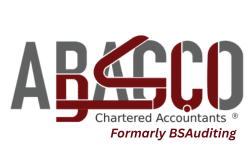Companies in UAE are required to submit audited financial statements to renew licenses, especially in the free zones. Banks need an audited financial statement to give loans/overdraft facilities or other forms of financial requirements.
The significance and urgency of auditing have been the key concern of the corporations. The company owners have been vigilant and mindful of their strategy. However, auditing was a crucial part long before the VAT era. Under the current UAE Commercial Companies Act, Federal Law No. 2 of 2015, Article 27, Chapter 2, each company shall appoint auditors to audit its books of accounts by a certified auditor registered under the Ministry of Economy in the UAE. However, several businesses are not pursuing this obligation, and they will have to face the repercussions in the form of fines and challenges while paying their taxes.
Tax Audit
The terms of the recently enacted federal tax legislation required the Federal Tax Authority (FTA) to have the lawful right to conduct a tax audit on any individual to assess their conformity with the applicable legislation’s provisions.
The FTA may carry out an audit at its workplace, a place of business of an individual, or at some other place where they operate a business, store merchandise, and/ or hold records. Although, in each of the cases, the person must be informed about the audit, at least five business days in advance.
When performing a tax audit, the tax auditor can request original documents, or copies thereof, or they can take samples of the products, equipment, or other properties available at the person’s business place. The tax audit will be carried out within the official operating hours of the authority. The Director-General can decide to perform an audit beyond normal hours, if necessary.
Businesses can get a good understanding of how they conduct business by analyzing business details on their own. To provide a clear view of whether the enterprise performs well and to get fresh insights about how to enhance the business, companies should turn to an internal audit conducted by an audit firm in Dubai, which specializes in this field and can also do bench marking for its client and offer a positive audit report that adds value to the business.
Internal Audit
Traditionally, internal audit roles have been set up by company managers to examine the internal control structure that management is responsible for creating. It acted more like a monitoring device for the analysis of the company’s financial measures. The internal auditor’s scope was also expanded to review internal procedures in other aspects of the company. It was also used as a monitoring system.
The new concept of internal audit is provided by the Institute of Internal Auditors (IIA) of the USA as follows: internal audit is an autonomous, impartial assurance and advisory operation intended to add value and enhance the enterprise’s functioning. It helps the company meet its goals by adopting a comprehensive, structured approach to evaluating and optimizing the efficacy of risk assessment, control, and governance processes.
External audit
The external audit includes the review of the accounts and financial records in compliance with IFRS and GAAP and the issuance of an evaluation of the financial statements.
In auditing, professional freedom, honesty, and objectivity are valued. The professionally trained and skilled personnel can help you comply with International Financial Reporting Standards (IFRS), Widely AgreedGenerally Accepted Accounting Principles (GAAP), and other regulations.
In an external report, the audit the accounting documents and analyze other facts justifying the financial statements. The external audit aims to provide management with confidence that the financial statement provides a “correct and fair” view of the company’s financial progress.
The external audit is advised for each entity, due to the competitive world economy, evolving customer patterns, and increasing the sophistication of reporting standards due to mandated compliance with IFRS and corporate law criteria. The external examination is mandatory for all organizations registered in the UAE.
Internal & external audit are not mutually exclusive. Instead, they complement each other. The external auditor can use the internal auditor’s research, in the case they find it necessary, but that does not minimize the external auditor’s liability. The internal audit shall serve as a monitor of the company operations and shall assist by consulting on different issues to achieve operating efficiency.


